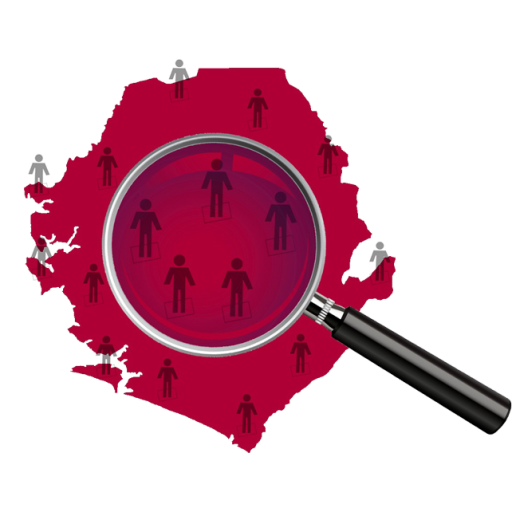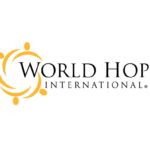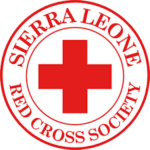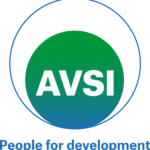Job Overview
-
Date PostedMarch 25, 2024
-
Location
-
Expiration dateMarch 31, 2024
-
Experience5 Years
-
GenderBoth
-
OrganizationGovernment of Sierra Leone
-
Required LanguagesEnglish
Job Description
REQUEST FOR EXPRESSION OF INTRESTS; CONSULTANCY SERVICES FOR UPDATING AND FINALIZING THE SIERRA LEONE NATIONAL BUILDING CODE
1.0 Introduction:
The Ministry of Lands, Housing and Country Planning (MHCJ)) through the Ministry of Finance under the Sierra Leone Economic Diversification project (SLEDP) has received financing front the World Bank towards the cost of updating and finalizing the Sierra Leone Notional Building Code (NBC) and intends to apply part of the fund for consulting setsiccs.N11,I ICI) seeks to procure the services of a consulting firm through a transparent, competitive bidding process and therefore invites firms with the best qualifications and experience reputable national and international consultants for updating and finalizing the Sierra Leone National Building Code to meet both national standards and international best practices in building construction, provide the path-way for the establishment of a multi-disciplinary Oversight Committee and organize industry wide consultations.
The shall also develop an implementation Plan for the Final draft of the Code which will cover the wider roll-out including enabling legislation, code maintenance and development over time, education and awareness raising; and approvals and enforcement. The work of the consultants shall also involve consultations with key stakeholders in the building regulatory environment in Sierra I-cone
2.0 Background and Justification
The control of building construction works in Sierra Leone has been a big challenge for the Government of Sierra Leone. There are no firm and coherent policies, laws, regulations and standards guiding the design and construction of buildings across the country. Existing policies and guidelines that attempt to address this peril are also fragmented, overlapping and implemented by different agencies of Government and the private sector.
The Ministry of Lands, Housing and Country Planning (MLHCP) for instance deals with application procedures for permission to erect both public and private buildings (construction permit), building construction, supervision and monitoring of building construction works, materials specification and guidelines, structural stability/safety of buildings. as well as guidelines on enforcement for contraventions of the building regulations under existing legislations, However, these legislations do not deal exclusively with the construction of buildings. Some of these legislations are the “Public Health Act” y, which is primarily focused on sanitary conditions in buildings, the “Town and Country Planning Act” which is directed at land use planning and development (planning) control generally and the The Freetown Improvement Act” (FIA) Cap 66 of the Laws of Sierra Leone which deals conjointly with both building construction and land use control.
At the same time the Ministry of Works and Public Assets (MWPA) performs similar functions but restricted to ONLY public buildings, roads, and other infrastructures, It also deals with quarrying for both public and private construction works, and registration of construction companies whereas the Ministry of Environment (MoEvn) regulates the environmental aspects of building construction works, Likewise, the Sierra Leone Standards bureau (.SI.SB) is mandated by Law to control quality and standards of materials including construction materials.
On the other hand, private sector institutions like the Sierra Leone Institute of Architects (SLIA) deals with the architectural designs and drawings, and urban planning, and the Sierra Leone Institution of’ Engineers (SLIE) deals with the control of the general engineering and Construction, structural stability, mechanical and Electrical aspects of buildings, The SLIA and SLIP, are professional bodies/institutions governed also by Law,
The overlapping in legislations and thus functions by these state institutions and the private sector sometimes creates a lot of confusion and control difficult particularly that of the issuance of construction permits, materials specifications, structural design, building services, fire safety and universal accessibility design, constructional practices and safety, dangerous structures, enforcement and penalties etc, This situation has had a toll in our in key global indexes relating to the business environment over the years. Sierra Leone was ranked low in the World Economic Fortin) (WEF) Global Connectiveness rankings in 2018 and also in the World Bank’s Doing Business ranking in 2020 (Sierra Leone was ranked 163 out of 190 economies in 2020),
Our underperformance is particularly evident in areas such as ‘dealing with construction permits’ (building control) amongst others and was considered worse than the regional average not only in terms of time, cost and procedures to deal with construction permits but also in the quality of’ building regulations, the strength of quality control, materials specifications and safety mechanisms, liability and insurance regimes, and professional citification requirements,
In a bid to mitigate the associated risks, in 2015 and early 2021 the then Ministry of Works, Housing and Infrastructure(MWHI) responsible for building control and the Sierra Leone Institution of Architects(SLIA) respectively prepared two draft National Building Codes, The Codes seek to provide the building byelaws, sets the minimum standards for safety, health, and general welfare including structural integrity, mechanical integrity (including sanitation, water supply, light, and ventilation), means of egress, fire prevention and control, and energy conservation and also provide guidelines for regulating building materials, services, systems and processes, These drafts were however, considered inadequate, inappropriate and/or not user-friendly in addressing current and contemporary issues in the Sierra Leone building construction environment and hence, have not been implemented. Against this backdrop, in late 2022, The World Bank through the Sierra Leone Economic Diversification project (SLEDP) commissioned a study to assess the regulatory framework and building codes (2015 and 2021 draft versions) in Sierra Leone as part of the “Building Regulatory Capacity Assessment (BRCA) for Africa project. The study was to support the Sierra Leone Government in identifying priority actions that address gaps and optimize regulatory systems, and processes in the Sierra Leone’s building regulatory framework.
The findings and recommendations of the consultants were submitted to the World Bank and Stakeholders in Sierra Leone in April 2023. Principal amongst the findings of the consultants was the need to review and develop the two draft codes into a single, final code document, addressing any gaps in coverage. It also provided guidance on how to move the implementation process forwards, As a first step in moving this process forward, SLEDP has offered to support the recruitment of a consulting firm (combination of a lead international consultant firm with local consulting firm or a group of local consultants to support the ML) ICP to update and finalize the Building Code and its successful implementation, The consultant(s) Shall have a deep knowledge of international best practice combined with an understanding oft he design and construction environment in Sierra Leone. The consultant(s) can appoint specialists as required for specific tasks, such as, the development of engineering design parameters or development of a Communications Strategy but Will maintain overall responsibility for the document.
3.0 Objective
The objectives of this consultancy service are: i) to facilitate consensus building on the building code concept ii) finalize the Sierra Leone National Building code in line with International best practice, including support for the Government to update an enforcing legal instrument’, iii) support building control process reform and develop required resources to foster capacity of government officials to implement updated building control process which aligned with a new building code; and iv) support its successful implementation and maintenance through capacity building and effective communication and awareness campaigns, This assignment will be carried out under the supervision of the MLI ICP and Project Management Unit of SLEDP, and will involve consultations with key stakeholders throughout the whole process, Mode of Application
The Project Fiduciary Management Unit of Ministry of Finance now invites eligible firms to express their interest in providing the services, The firm should provide information demonstrating having the required relevant qualification and experience for the assignment. The Consulting firm will be selected in accordance with Consultant’s Qualification-based
Selection method set out in the Consultant Guidelines; Selection and Employment of Consultants under IDA Grants by World Bank Borrowers, (July 2016, Revised November 2017,2018 and fourth edition 2020), The evaluation shall based on the relevant qualification and experience of the firm for the assignment, The detailed Terms of Reference can be requested for at The expression of interest should be addressed to;
The Procurement Management Specialist
Sierra Leone Economic Diversification Project
Ministry of Finance
35 Percival Street Freetown
Tel: +23278235061 or
By E-mail application as attachment:
to; sleconomicdiversification@gmail.com
Closing Date:
The Closing Date and time for receipt of applications is 5th April 2024 at 16:00pm,
Note: Only the recommended firm will be contacted.







